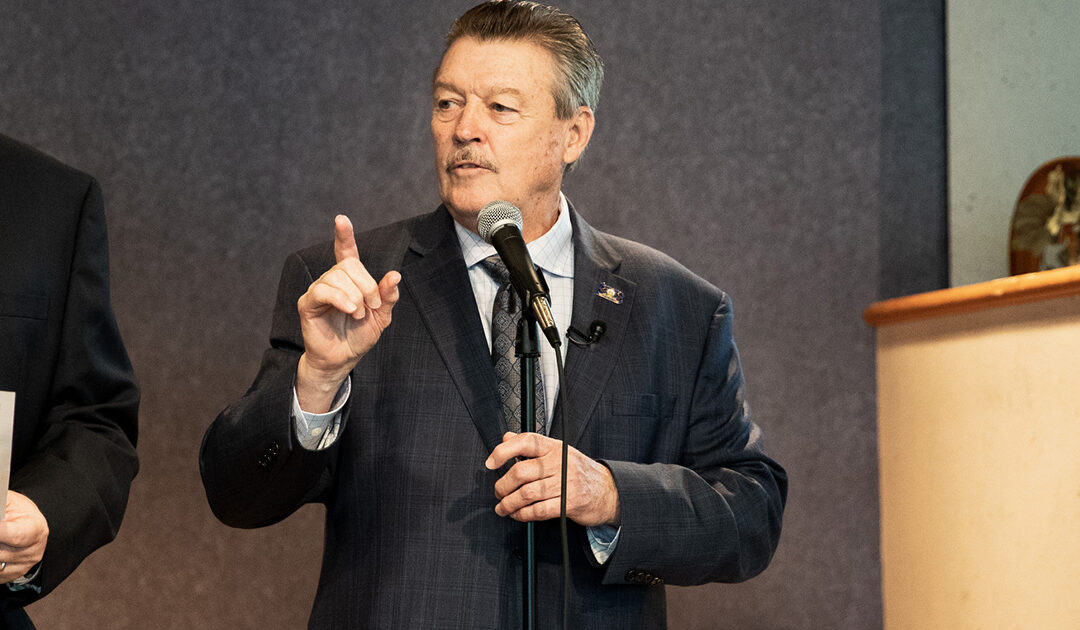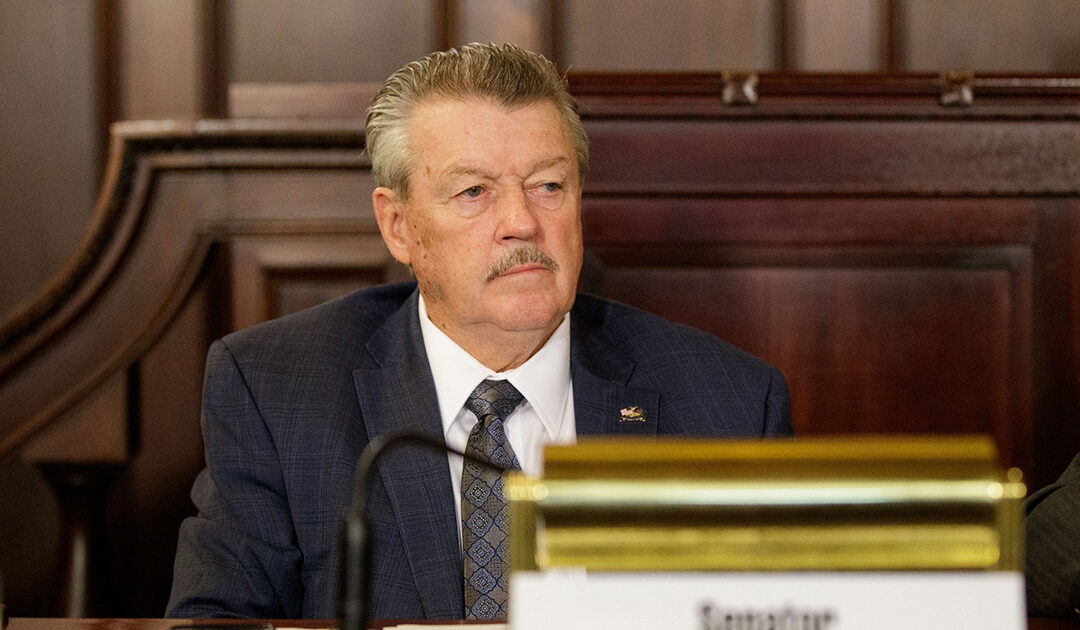
July 13, 2022
Harrisburg, July 13, 2022 – It’s not really surprising that the highly profitable Pennsylvania Liquor Control Board (PLCB) -which not only serves urban and suburban customers, but also reaches deep into sparse rural regions – has faced constant attacks over the years by profiteers and their loyal allies in the General Assembly.
What should be surprising is that these partners, stifled by the elected General Assembly’s refusal to put at risk up to 5,000 jobs and billions of dollars in state revenue, are now willing to try a new tack: an end run around the legislative process to push their scheme past voters in a low-turnout referendum that would lead to amendment of the state constitution.
It is the latest in a series of referenda proposed by a minority of lawmakers who can get their bad ideas through the General Assembly.
PLCB control of alcohol distribution keeps it away from minors, provides thousands of good paying jobs, ensures availability and selection in small, rural markets and delivers billions of dollars to the state treasury. Preserving quality jobs and protecting taxpayer revenue are issues that appeal to Democrats and Republicans alike.
In 2016, the parties agreed to a plan to modernize the PLCB. The reforms included removal of restrictions on Sunday sales, flexible pricing, private wine sales for hotels and grocery stores that sell beer, direct shipment of wine and six-pack sales at service stations. The negotiated deal brought together both long-time advocates and detractors of the system – uniting Republicans and Democrats in support of commonsense changes.
These efforts, along with other reforms, have made the system highly profitable and an integral part of the revenue platform for Pennsylvania. According to the PLCB, in Fiscal Year 2020-2021, the PLCB achieved record net profits of nearly $265 million, which was almost a 27 percent increase from the previous year. That profit, which comes on top of taxes raised, would be entirely lost in privatization, and would need to be made up somewhere, probably by raising taxes which I would oppose.
Not only was the PLCB lucrative, but it contributed more than $800 million to support state and local government operations. The PLCB sent $765 million to the General Fund, another $29 million was earmarked for the Pennsylvania State Police, $5 million for Drug and Alcohol programs plus millions in licensing fees went to local governments.
Conspicuously missing from this debate is any talk of the morning after. As is often the case with binge behavior, voters are likely to regret privatization when they wake up to higher taxes and prices, crowding of problem stores in dense neighborhoods, and dramatically reduced public health. Ask the people of Washington state, who voted to privatize in 2011. Thorough academic research concluded “…in the years immediately following liquor privatization in Washington State, public opinion has changed enough to shift the result of the election from supporting privatization to rejecting it.” Washington now has the highest liquor taxes in the nation to make up for the lost revenue.
The revamped and modernized PLCB is the product of bipartisan work. There is no need to clang the privatization bells and there is little to no clamor for fundamentally altering the system. The PLCB system is working. It’s protecting minors from alcohol, ensuring a wide array of products, extending service into rural areas and churning revenue to relieve taxpayers of an even greater burden.

October 4, 2021
Harrisburg, October 4, 2021 – State Sen. Jim Brewster, Democratic Chair of the Senate Law and Justice Committee, issued the following statement regarding recent action by the state Liquor Control Board to limit purchases of certain alcohol products and the resulting criticism:
“Over the years, critics of the Pennsylvania Liquor Control Board and its management of the commonwealth’s retail alcohol sales have aired various complaints in a not-so-subtle move to dismantle the system and turn its profitable business over to private interests.
Some of those complaints have been warranted, and the PLCB has responded with reforms that have made liquor sales in Pennsylvania more consumer friendly and increasingly profitable to taxpayers.
The pandemic brought more challenges to the system and its thousands of employees, along with the predictable volley of complaints from the long-time critics. The latest protest against the board’s decision to ration certain high-end alcohol products to prevent hoarding is perhaps the weakest brew they’ve ever distilled.
The pandemic brought a certain level of chaos to the free-market system, and liquor products are no exception. Pennsylvanians are fortunate to have a single manager of alcohol sales, allowing fairer and more rational distribution. Rather than hurting consumers, the rationing plan helps preserve availability across the state, which could otherwise see supply dominated by wealthier markets.
In New Jersey, for instance, there were widespread reports that wealthy New Yorkers were traveling south to buy up entire store supplies of certain products making them unavailable to locals.
The PLCB was also criticized 18 months ago when it made the decision to close stores to prevent unnecessary public gathering, giving the outlets opportunity to develop socially distant shopping procedures and protecting its employees from a dangerous health threat.
Due to the leadership and the more than 3,500 employees, the PLCB has delivered $2.91 billion in profits on behalf of the taxpayers, while ensuring availability and selection in areas with lower customer traffic.
We are still facing numerous serious threats as the pandemic lingers and dangerous variants emerge. A two-bottle limit on $80 bourbon isn’t one of them.”
February 27, 2015
Harrisburg – Feb. 27, 2014 – Senate Democrats outlined their liquor modernization plan today, a day after the House of Representatives passed an ill-conceived privatization plan.
“No banker would back it and no business would implement it,” Sen. Jim Brewster (D-Allegheny/Westmoreland) sponsor of the Senate Democratic proposal said today about the House plan (House Bill 466). “The plan that passed the House takes the wrong approach at precisely the wrong time — it makes zero business sense and there are better alternatives.
“Under valuing a profitable asset and selling it off at fire-sale prices is no way to proceed.”
Brewster was vice-president of operations at Mellon Bank and has decades of experience in private business.
He said the modernization plan produced by Senate Democrats, introduced as Senate Bill 15, has the potential to produce an extra $150 million annually. The state’s liquor system generated $320 million in liquor taxes, $124 million in sales taxes and $80 million in net profits last year on more than $2.24 billion in sales.
The lawmaker said the Senate Democratic modernization plan would:
- Remove the cap on the number of stores that can operate on Sunday and extend the permitted hours of operation from 9 a.m. to 9 p.m.;
- Improve opportunities to partner with grocery stores to increase the number of stores-within-a-store;
- Offer customer-service programs to improve customer experiences in stores;
- Sell lottery tickets within wine & spirits stores;
- Require final determinations on store lease arrangements within 90 days;
- Join with other states on purchasing arrangements to help secure the very best price;
- Fashion demand reforms such as allowing beer distributors to sell smaller quantities than cases, and permits for direct wine shipments to homes.
“We have a valued asset in our wine-and-spirits stores and they can be a tremendous resource for our taxpayers for years to come if we modernize and adapt,” Brewster said. “The last thing we should do is sell off an asset for a below-market price in an attempt to serve an ideological impulse.
“The Senate Democratic plan would improve convenience, create better access, provide service and delivery options while preserving thousands of jobs.”
The House-passed privatization plan, which involves selling 1,200 licenses, has been sold as a way of plugging the $2.3 billion budget hole created by the Republicans and former Gov. Tom Corbett. However, according to a Republican fiscal analysis, the plan will only raise a small portion of $2.3 billion in one-time revenue in 2015-16.
The House privatization plan passed 114-87. Gov. Tom Wolf has indicated his opposition to the plan.
-30-


